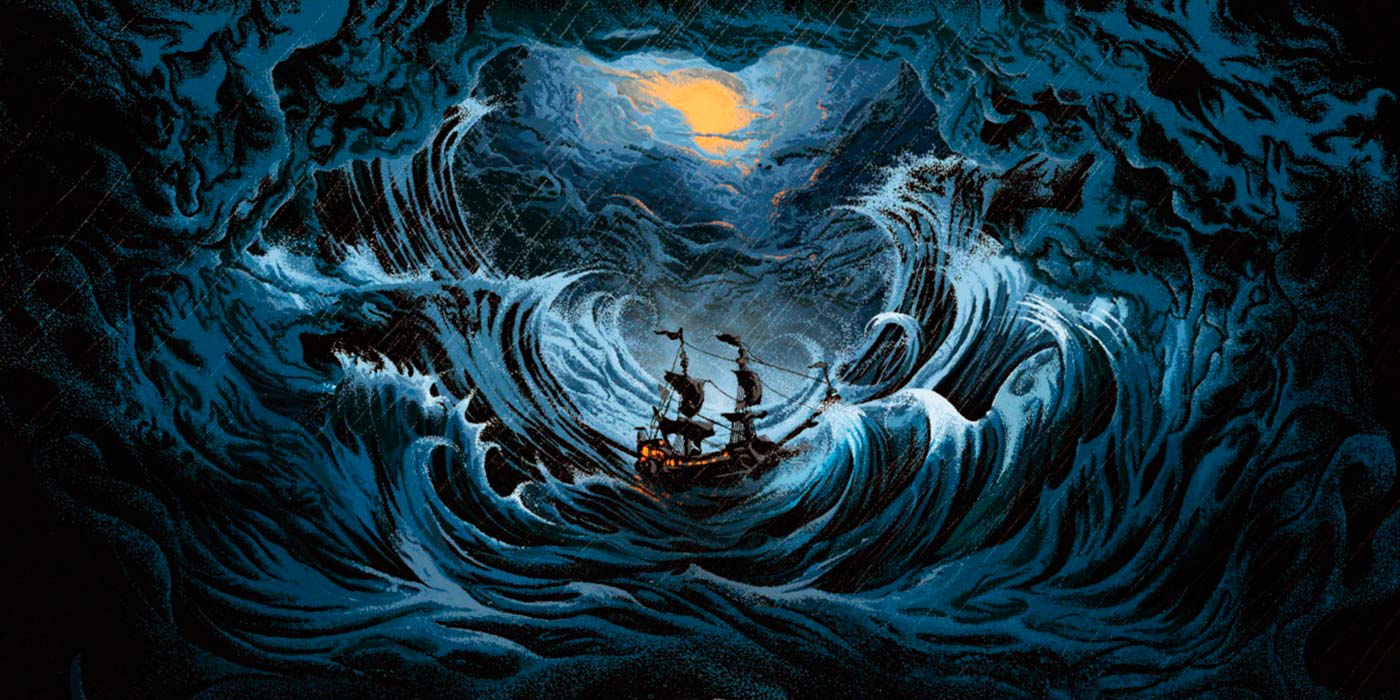The term “savior of country music” seems to get bandied around a lot these days.
Artists like Jason Isbell, Chris Stapleton and Sturgill Simpson have, of late, constantly been tagged as the guys who are going to lead modern country out of its current, bro-y darkness and back to the grizzled outlaw values that made it so damn important in the first place. Which makes sense: All three are immensely talented musicians. But of those three, however, Simpson stands out as the enigma.
The Kentucky-bred Navy vet broke through in 2014 with the critically adored Metamodern Sounds in Country Music, a sprawling throwback of an album that garnered comparisons to Waylon Jennings and touched notably on Simpson’s experiences with psychotropic drugs (itself an oddity in the genre). But A Sailor’s Guide to Earth, Simpson’s most recent, is another beast entirely — because it’s barely a country record at all.
Though it opens to the familiar strains of Americana, A Sailor’s Guide to Earth quickly takes a hard left halfway through its opener, “Welcome to Earth (Pollywog),” veering into a shuffling take on “Gulf Coast soul.” The rest of the album’s eight songs follow this atypical suit, pinballing between Simpson’s familiar country ethos, bleating horns and enthusiastic, almost Otis-Redding-esque vocals on songs like “Keep It Between the Lines” and “Brace for Impact (Live a Little).” And “Sea Stories” contains what I can only assume is country music’s first ever reference to getting high and playing GoldenEye on N64.
But the album’s most striking moment comes on a song that Simpson didn’t even write. Nestled about halfway into A Sailor’s Guide to Earth sits his down-tempo take on “In Bloom,” one of the best-known tracks on Nirvana’s classic Nevermind. But the song’s refrain of “He’s the one / Who likes all the pretty songs / And he likes to sing along / And he likes to shoot his gun/ But he knows not what it means” serves as a poignant commentary on the state of modern country music to which Simpson is the alternative. Whereas the radio has become dominated by overzealous, god-and-guns red staters, Simpson serves as a winking, cynical companion who acknowledges a genre closely associated with neo-conservativism by taking the piss out of a portion of its audience. Then again, maybe that’s just me reading too far into it.
Simpson has managed to craft an alternative country album that’s an actual alternative to country. It tempers its twang with a healthy dose of soul and psychedelia, and its lyrics (which are somehow an example of both detailed storytelling and druggy non-sequiturs) showcase Simpson’s best.
It’s always exciting when an artist doesn’t adhere to genre conventions. But when those conventions are stripped away almost entirely, as Simpsons does with A Sailor’s Guide to Earth, it can make the listener downright giddy.
Playlist picks: “Keep It Between the Lines,” “Sea Stories,” “All Around You”
File Under: Psychedelic Outlaw Country: 95%
An Entire Verse of a Song That’s Just the Names of Japanese Cities: 100%
I Didn’t Know You Liked to Get Wet, Dog: 75%
Overall: 88%



